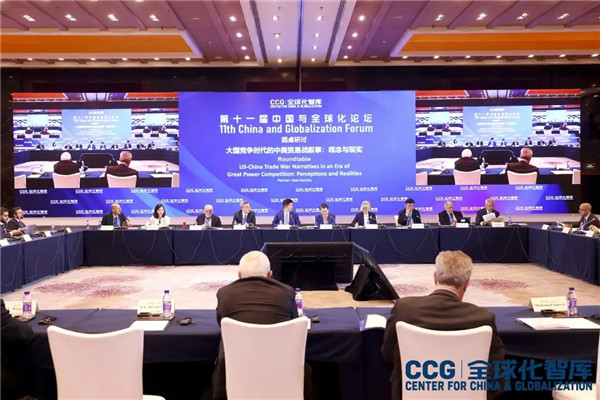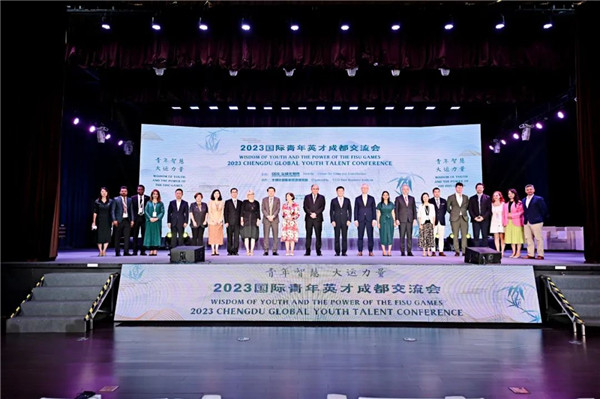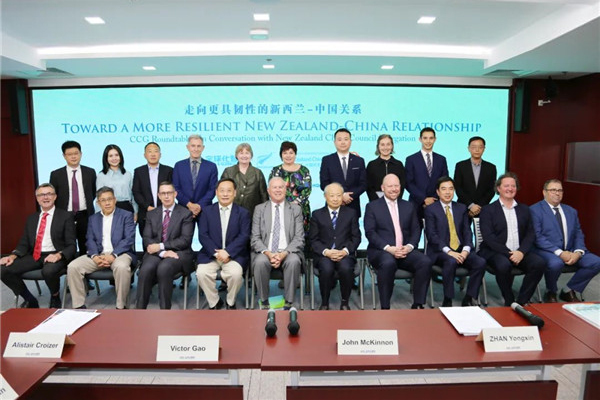CCG participates in Global Think Tank Town Hall meetings
Amidst COVID-19, what role can think tanks play in the growing economic, public health, and welfare crises that have engulfed countries around the world?
On April 7, May 18, and June 30, the Think Tanks and Civil Societies Program (TTCSP) at the University of Pennsylvania hosted a series of Global Think Tank Town Hall meetings. Aiming to promote evidence-based, policy-relevant, action-oriented policies to save lives and livelihoods in the wake of the COVID-19 crisis, the meetings featured 1,226 think tank executives, academics, and policymakers from more than 540 institutions in 87 countries.
The Center for China and Globalization (CCG) participated in the meetings, providing a Chinese think tank perspective on the pandemic. CCG also took part in the Global Think Tank Town Hall to Save Lives and Livelihoods, a report that underscored the value and importance of think tanks and the shared responsibility of this community of institutions that value expertise, ideas, and action.
The Global Think Tank Town Halls demonstrated that international cooperation is possible and that experts from a range of disciplines can work together in a short period, to produce innovative policy solutions to address an unprecedented crisis. The meetings also emphasized the importance of harnessing the networks and ideas of the global think tank community for the public good.
The Global Think Tank Town Hall to Save Lives and Livelihoods documented the efforts of people who have crossed borders, party lines, and disciplines to address a global crisis. The executive summary of this report shows as following:
Executive Summary Introduction
Countries across the globe are struggling with the destructive health and economic consequences of COVID-19. However, unlike the devastating pandemic of 1918, there are opportunities in the current context to rapidly share information and collaborate across borders. Think tanks are positioned to serve policymakers and the public as they grapple earnestly with the current and future health and economic consequences of a pandemic on this scale. When stakeholders look to think tanks for research and innovative policy solutions, organizations must be ready with information and easily digestible strategies for government, civil society and private sector decision makers.
The Global Think Tank Town Halls were designed to serve as catalysts for evidence-based, policy-relevant, action-oriented policies and proposals to create solutions for saving lives and livelihoods in the wake of this COVID-19 crisis. The Think Tank Town Halls demonstrated a special moment of unity, as 1226 think tank executives, scholars and policymakers from over 540 institutions in over 87 countries met over the course of the three Town Halls. The objectives were to create rapid and proactive responses to the growing economic, public health and welfare crises that have engulfed countries around the world. The Global Think Tank Town Halls largely focused on the public health crisis, economic recovery, vulnerable populations, international cooperation, and new think tank models. The Town Halls showcased leadership, resilience, and innovation across the world, and evinced the importance of global cooperation, especially in times of crises.
Global Think Tank Town Hall I
The first Global Think Tank Town Hall on April 7, 2020 brought together close to 400 participants from 278 institutions and 85 countries to discuss the procedural and substantive effects of COVID-19, as well as potential responses to pandemics in a post-COVID-19 world. During the opening panel of the First Town Hall, the participants discussed strategies for how think tanks can continue their work by reorienting towards the current crisis.
Think tank leaders emphasized the importance of creating and maintaining new relationships, especially those between think tanks and local actors and policymakers. Five themes for think tanks to consider going forward were presented: leadership, communication, technology, security and resiliency. By focusing on these themes, think tanks would be able to produce research and recommendations that will have a lasting policy impact.
Global Think Tank Town Hall II
The Second Global Think Tank Town Hall took place on May 13, 2020 and brought together 303 think tank executives, scholars and policy makers from 87 countries. The goal was to produce five action-oriented reports within 45 days that will be conveyed to the T20 Secretariat for inclusion in briefing materials for the G20. The outcomes of these reports would then be discussed at a third and final Global Think Tank Town Hall. These five action-oriented reports were produced by five respective working groups and were centered around:
1. Addressing the Public Health Crisis
2. Preparing National and International Strategies for Economic Recovery and Revitalization
3. Identifying Innovative and Inclusive, Public and Private Interventions Strategies to Help Vulnerable Groups
4. Fostering International Cooperation—Creating Rapid, Responsive, and Resilient Systems to Respond to Future Crisis
5. Being Fit for an Uncertain Future: New Operating Models for Think Tanks—Research, Communications and Funding
Global Think Tank Town Hall III
On June 30, 2020 think tank executives, scholars and policymakers came together for the largest of the three Town Hall meetings with 560 participants from over 80 countries. During this event, the five working groups established at the previous Town Hall presented their research findings from the past month. Their findings included strategic, action-oriented recommendations, as well as positive interventions occurring in various countries. These action-oriented recommendations were at the center of The Third Town Hall, as key proposals were presented during the Town Hall, and a more detailed list of recommendations was made available after the Town Hall through reports by each respective working group. As the final and main event of the Virtual Town Hall series, the Third Town Hall was essential in establishing what the role and next steps of think tanks should be during this COVID-19 pandemic. Following this Town Hall, from July 6-10th 2020, each working group held a breakout session with 30-80 attendees each to further discuss their findings and recommendations.
Click the following link to read the full text of this meeting report:
https://www.gotothinktank.com/town-hall-reports





